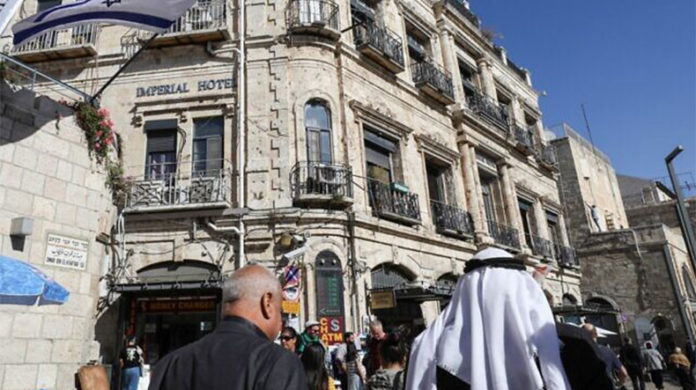JERUSALEM — The Armenian Patriarchate of Jerusalem is a major property-owner in Jerusalem. Recently a controversy was sparked about plans of the Patriarchate to lease a piece of property for 99 years in order to build a hotel on what is called the Cows’ Garden or Goveroun Bardez, a large stretch of land in the Armenian Quarter near the Armenian convent. Several articles in the Armenian press, including a column in the Mirror-Spectator by Harut Sassounian, criticized this decision.
Very Rev. Baret Yeretzian, the director of Real Estate for the patriarchate for the last seven years, and thus involved in negotiating this lease, responded to those criticisms in an interview and provided his own perspective. He also has issued a communiqué (https://armenian-patriarchate.com/2021/09/07/communique-september-7-2021/).
Managing Patriarchate’s Properties
Fr. Yeretzian related that the Armenian Patriarchate owns property in Jerusalem, Tel Aviv, Jaffa, Bethlehem and many other places. He said, “We have many issues connected with our lands, even concerning our neighbors, in many places. For us, the most important thing is not to leave these lands vacant. When they are left vacant, everyone’s eyes are on those properties. Investment for us is the most important means to secure our lands and the future of our patriarchate.”
In his tenure in office, Yeretzian said there have been more than 20 lawsuits concerning property, of which nearly all were won by the patriarchate. Tenants try to avoid paying rent, some sublet or rent out the Armenian Patriarchate’s property to others without permission, and others try to usurp land outright. Yeretzian said that after sending warnings, if there is no response, the next step is to take such people to court.








